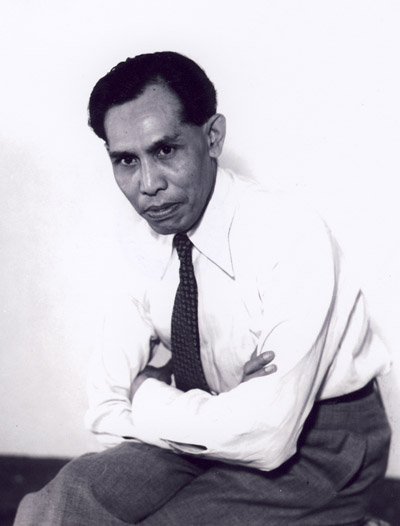
Civis 001/2013
Every Indonesian Citizen’s Duty
“From the spiritual perspective, the country and nation should live not just to achieve as high dignity as possible among the nations, but also to glorify God’s name” (Johannes Leimena)
We have talked about the principles of state, nation, and—though briefly—a Christian view of the world, state, nation, and society. Understanding of responsibility has also been explained.
Now we will try to apply them to our society in general and particulary the Christians in Indonesia.
Our country is a new one. Now that we have our own state, we deal with state issues, both interior and foreign affairs. If our country belongs to all of us, then all citizenship issues, both difficult and easy ones, are our own issues. And we have to solve them together. This is our responsibility and duty together, because freedom means responsibility. The absolute requirement for this responsibility is the country-consciousness.
In my opinion, this awareness—though not yet up to expectation—is growing deeper among the groups in our people. However this needs to be nurtured, so that it penetrates even deeper into the souls of our people.
This consciouness as a country is further motivated when we look overseas and find our representatives where our country flag—red and white—is raised. This consciousness must walk hand in hand with the love to our homeland as a country with islands spread across the equator from Sabang to Merauke like an emerald chain.
This love should also be nurtured and deepened in both the young and old generations. Our consciousness of and love for our contry may grow deeper if we view our country as a gift from the Almighty God.
In a period of world history, God has blessed the Indonesian people with a country. In my view, God has a purpose for this country. With this gift, God gives a task for the country and nation, that is to preserve their life as well as possible, along with their neighboring countries. In that way, the country participates in creating a healthy global society.
From the spiritual perspective, the country and nation should live not just to achieve as high dignity as possible among the nations, but also to glorify God’s name.
I understand that this duty is extremely heavy. However, isn’t it true that our world history has shown that a country (nation) falls apart when it ignores the norms that God wants? Viewed from this perspective, the responsibility of every nation, every citizen and government, is indeed very heavy.
It’s been mentioned previously that each citizen, of any religions, has a place, function, and purpose in the state duty. Therefore, we all share a concern to determine the format and foundation of our country. In this matter we need to find the largest denominator for all groups in our nation. Because we all agree on this concensus, then everyone is willing to defend the country, and everyone is willing to sacrifice both their wealth and their life for the country.
This is the main issue that will become the “piece de résistance” (piece of resistence) to be discussed in the upcoming Constitutional Assembly—a body composed of the different groups in the society with the task to prepare our permanent Constitution. This is where the upcoming elections become important. Neglecting elections means neglecting our responsibility to our country, whose foundation and life must be determined by us together, Christians and non Christians.
Specifically, we will need to agree together in deciding:
Country based on Communism;
Country based on Quran and Hadith; or
Country based on Pancasila (“Five Principles”).
In my understanding, if we don’t come to an agreement on this—and until today I haven’t seen a better “formula” than Pancasila that can satisfy all groups—then our country will disintegrate and all our struggles will be wasted. Our country will become prey to the foreign ravens. This internal dispute lays mostly on the confused standpoints on our state foundation and purpose, because our current Constitutionn is a temporary one.

This series originates from the lecture by Dr. Johannes Leimena (1905-1977) in Sukabumi, West Java, in 1955, entitled “Responsible Citizenship”. Being a student activist in STOVIA medical school, he joined the committee for the 1928 Youth Congress which gave birth to the monumental Oath of Youth. Then he served as minister in 18 cabinets from 1946 to 1966, from Minister of Health until Vice Prime Minister. He was entrusted as the Acting President of the Republic of Indonesia for seven times when President Soekarno was overseas. The Bandung Plan that he drew up based on his experience as Minister of Health is the origin of today’s Community Health Center system. He also helped the founding of the Indonesian Christian Student Movement and the Council of Churches in Indonesia.
